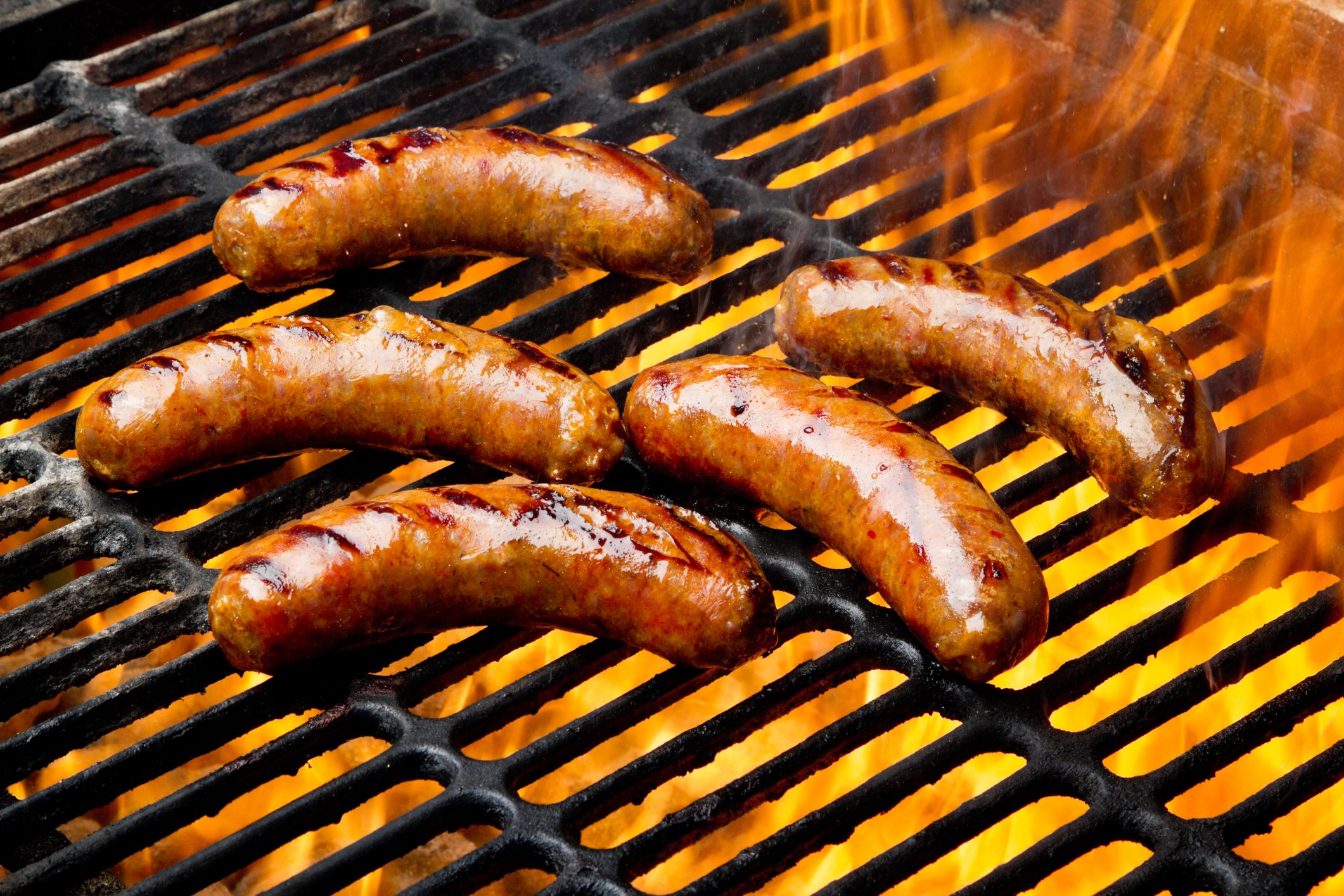Science has found many processed meats are carcinogenic. Of those, say two Cleveland Clinic experts, this type shows to be the riskiest.

This Type of Meat Can Increase Cancer Risk, Say Cleveland Clinic Experts

The messaging out there can be confusing: Many of us keep hearing that a high-protein diet isn’t just helpful for slimming down; it also helps you maintain healthy muscle mass during life stages like menopause. And, increasing evidence shows that keeping muscle is linked with a longer life.
On the other hand, rates have been rising for certain types of cancer among certain demographics. For example, colon cancer’s been occurring to younger populations than in the past. One of the behaviors that’s been linked with this and other types of cancer is eating a lot of red meat, and processed meat.
So if you’re trying to make the healthiest choices in light of all the confusion, Cleveland Clinic expert Beth Czerwony, MS, RD, CSOWM, LD, says there’s one meat-preparation method that may be particularly hazardous when it comes to your cancer risk.
Smoked meats—those cooked over an indirect heat source—come with a side of significant health concerns, Czerwony says. Though the smoky flavor may be enticing, the process of creating that flavor can have a cancer-causing effect. “When we’re preparing smoked meats, the smoke itself is one of the things that can create carcinogens,” the dietitian said in a video interview from the Cleveland Clinic.
In particular, the smoking process produces harmful substances called polycyclic aromatic hydrocarbons (PAHs) and heterocyclic amines (HCAs), which have been found to cause changes in our DNA, thereby increasing cancer risk.
Gillian Culbertson, MS, RD, LD, CSOWM, another registered dietitian at the Cleveland Clinic, elaborates on the science behind this: “These compounds are created when fluids and fat drip from the meat onto the heat source and as a byproduct of the smoke … Aromatic rings are formed, creating these harmful compounds that are transported to the meat from the smoke.”
Culbertson warns that frequent exposure to these compounds, which can also occur when meat has been charred at high heat on a grill, “can lead to increased risk of cancer of the intestinal tract, notably colon and stomach cancer.” She adds: “Recent research also suggests that red and processed meats, including smoked meats, may increase your risk of breast and prostate cancer.”
That’s why, if you do eat smoked meat, it’s a good idea to view it as a treat and limit your intake, the experts say. “It comes down to everything in moderation,” Czerwony says. “It’s also important to know the risks and keep in mind there are ways to try and make the process of smoking meat less harmful.”
The U.S. Department of Agriculture (USDA) has shared several tips on doing just that. They say you should only smoke meats in smokers made of approved materials—never in makeshift containers such as galvanized steel cans. Use commercial charcoal intended for cooking, thaw frozen meat completely before you begin, and always use a thermometer to ensure your meat has reached a safe minimum internal temperature before consuming it. Choosing lean white meats and unprocessed meats over red meats that are high in saturated fat can also help lower the health risks associated with meat consumption.
Czerwony adds that experimenting with various cooking seasonings can help you achieve a smoky flavor without actually smoking the meat. That way, you can still enjoy some of your favorite meals without the added risk.
About the Experts
|
For daily wellness updates, subscribe to The Healthy by Reader’s Digest newsletter and follow The Healthy on Facebook and Instagram. Keep reading:
- “Here’s How I Knew I Had Cervical Cancer”: One Survivor’s Story of Discovering Unexpected Symptoms
- National Meat Recall Now Affects Walmart, Trader Joe’s, Kroger, Amazon Fresh, and Others
- “Here’s How I Knew I Had Pancreatic Cancer”: One Survivor’s Story After Years of Growing Clues
- Kamala Harris Health Report: A Doctor Breaks Down the Meaning




















